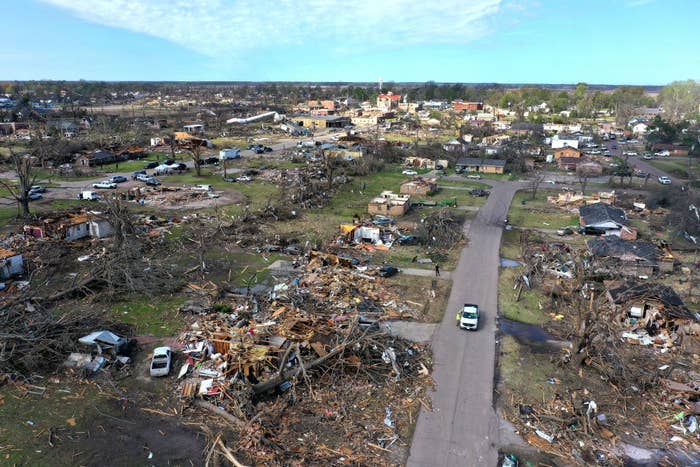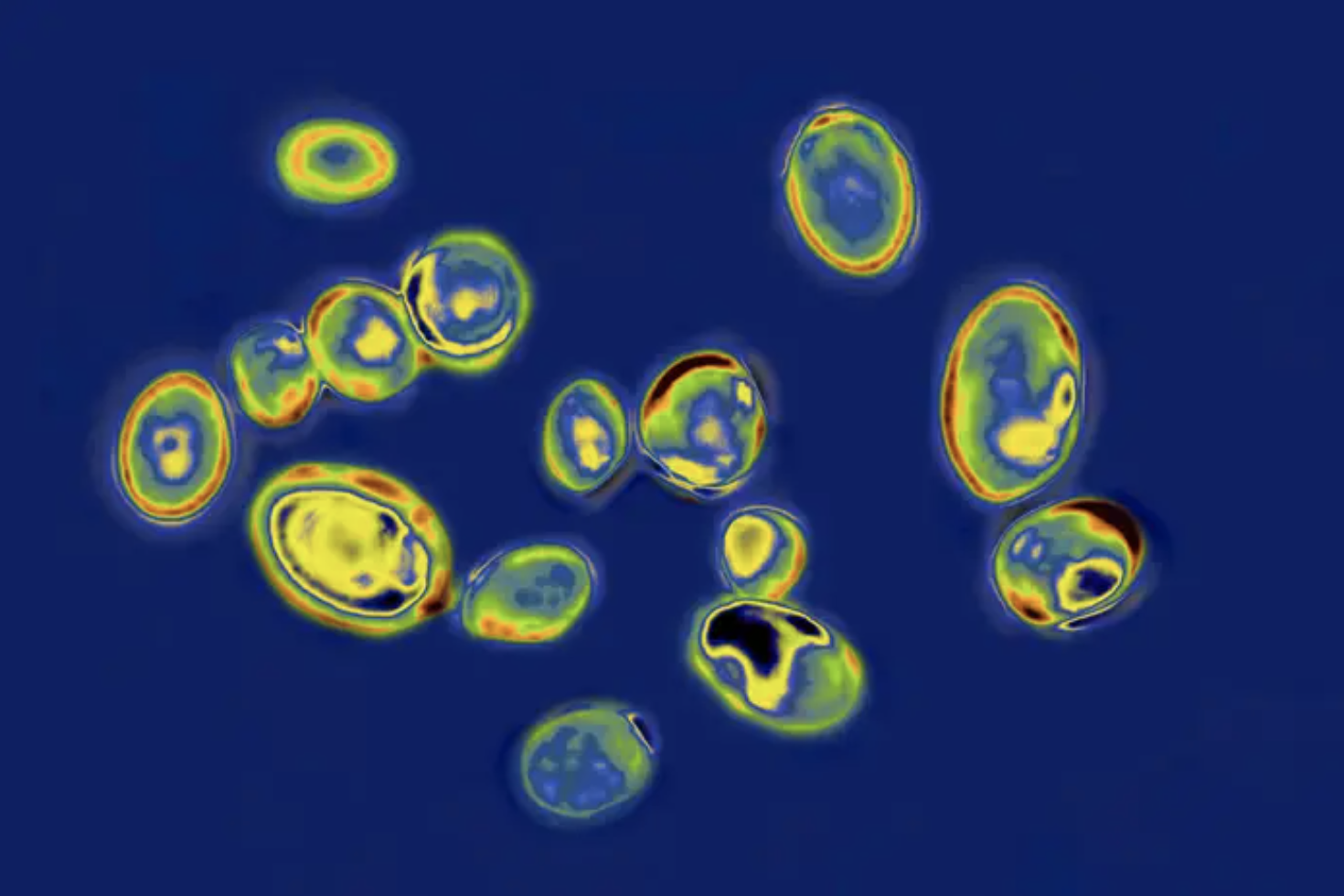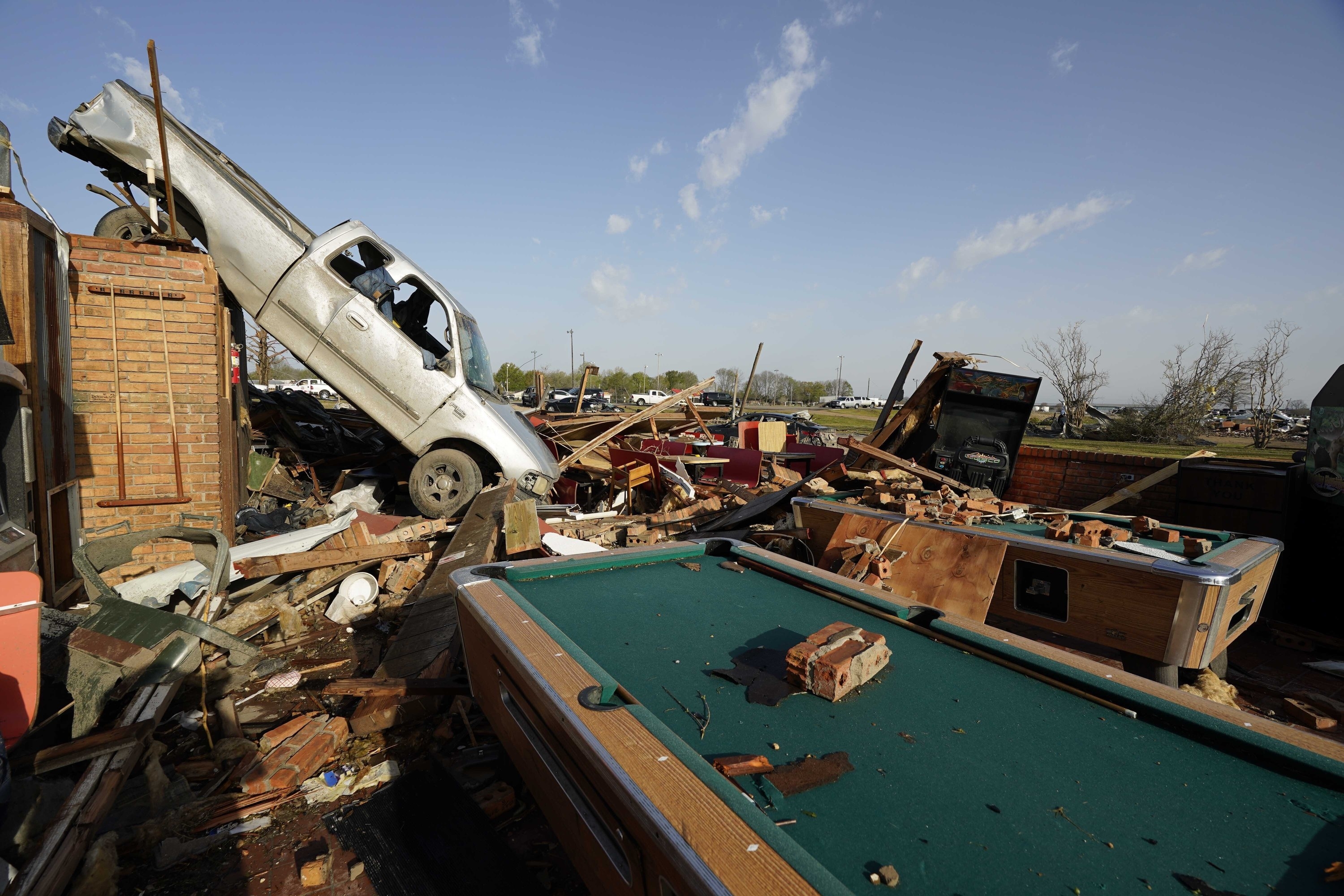This is an excerpt from Incoming, BuzzFeed News’ morning newsletter dedicated to making sense of this chaotic world we live in. Join the club.
Deadly tornadoes kill at least 26 in Mississippi and Alabama

Deadly tornadoes wreaked havoc across Mississippi and Alabama starting on Friday, killing at least 26 people and destroying an entire town. Tornadoes and severe storms also struck Georgia on Sunday, leaving people injured and trapped across the state. Parts of Louisiana and Texas were put on tornado watch on Sunday by the National Weather Service.
President Joe Biden has issued a disaster declaration in Mississippi to unlock immediate and long-term federal aid for affected residents. The violent windstorm's trail spanned 100 miles statewide, upending buildings and power lines and producing golf ball-sized hail. Rolling Fork, a small town with a population of 1,883 as of the 2020 US Census, was effectively flattened, according to Mayor Elridge Walker. “My city is gone,” he told CNN. “But we are resilient and we are going to come back.”
Mississippi experiences about 30 to 100 tornadoes per year, according to the state’s Department of Health. But National Weather Service meteorologist Lance Perrilloux said this deadly tornado was “very rare.”
Weather disasters are inextricably linked to human-induced climate change. Wildfire seasons are getting longer. Hurricanes are getting wetter and more dangerous. Heat waves are getting hotter, more frequent, and longer-lasting. Heavier rainfall across the US is triggering more inland flooding. And the cost of climate disasters is soaring. Stopping this vicious cycle will require drastically reducing our reliance on climate-polluting fossil fuels.
The biggest protests in Israeli history
- In January, Israeli Prime Minister Benjamin Netanyahu proposed a plan that would sharply curtail the power of Israel's judiciary, and allow legislators to pass laws that the Supreme Court has deemed unconstitutional, AP reports. Since then, mass protests have swept the country, with the latest inflection point happening this Sunday.
- After Defense Minister Yoav Gallant spoke out against the judicial proposal, Netanyahu fired him and tweeted, “We must all stand strong against refusal.” In response, tens of thousands of people across Israel turned out to protest. The final vote in Parliament on the judicial reform plan is this week.
SNAPSHOTS
Four people were confirmed dead and three people remained missing as of Sunday after a devastating explosion at a Pennsylvania chocolate factory. Residents of West Reading suspected that the cause was a gas leak.
Jonathan Major's attorney says the woman who accused him of assault has taken back her allegations. The actor was arrested Saturday on suspicion of strangulation, assault, and harassment. An attorney for Majors said he’s innocent, and video evidence and witness statements will prove it.
Gwyneth Paltrow said she did not get the idea to countersue for $1 in her ski crash lawsuit from Taylor Swift. Terry Sanderson has accused Paltrow of crashing into him while not paying attention to her surroundings, resulting in him being severely injured. Paltrow insisted that Sanderson was the one who collided with her.
Daniel Radcliffe is expecting his first child. The actor and Erin Darke have been together for 10 years, with Radcliffe telling People magazine last year, "We're really happy."
What experts say about Candida auris, the new "urgent threat" to human health

Candida auris, an emerging fungus that was first reported in the US in 2016, is already often resistant to all available treatments, spreads rapidly in healthcare settings, and can be fatal. And its reach is quickly spreading, with a recent CDC study reporting the number of known cases nearly doubled in 2021 to 1,471 — and that’s likely an underestimate.
This type of yeast can colonize your skin and gut, among other areas. It’s spread by close contact with someone who's infected or colonized with the fungus, and can also spread through contaminated surfaces, where it can survive for weeks, according to the CDC. The most important steps people can take to avoid the fungus is to practice good hand hygiene, aka hand washing, especially in healthcare settings.
The emergence of different clades, or distinct families, of C. auris and their rapid spread around the world are likely due to climate change, said Dr. Syra Madad, an infectious disease epidemiologist. When organisms like fungi evolve to live at higher temperatures, it can give them an advantage when it comes to growing in the high-temperature conditions of the human body.
Experts predict that we’ll see more pathogens emerge as global temperatures continue to rise. “Climate change is going to increase the risk of new fungal threats, and Candida auris is a great example,” said Dr. Scott Roberts, associate medical director of infection prevention at Yale School of Medicine. “I suspect over time we will see both rising cases of Candida auris and new species emerge.”
"The reality is, as climate change persists, its impact on infectious diseases ... will only grow,” Madad said.
IMAGE OF THE DAY

Lana Del Rey confronts mortality on her new album

Lana Del Rey can’t stop thinking about getting old, Izzy Ampil writes. On her ninth studio album, Did You Know That There’s a Tunnel Under Ocean Blvd, she confronts her own mortality with a depth of fear that feels new and hard-earned.
None of these tracks are really meant to be hits. In many places, Del Rey abandons clear divisions between verse, chorus, and bridge, instead writing epic poems to herself where she figures out how best to live. Sometimes she mumbles, as on the title track, as though intentionally obscuring her words from the public. Sometimes she rambles, as on “Kintsugi,” which is an awkward metaphor for finding light in the cracks of grief. Sometimes she stumbles, as on the unlistenable “Peppers,” which will hopefully be the last time she tries to rap.
But if you have the time to crack the album open, its moments of transcendent beauty are devastating. Del Rey seems increasingly aware of her limited lifespan, and of the significant milestones of adult life that are passing her by. She’s nervous. She wants to make sure the world remembers her; on the titular track, she pleads, “Don’t forget me.” Processing death amid the tumult of regular life, Del Rey distills the chaos of grief into succinct and thrilling verses that make the album worth a listen.
Still reading, eh? Seems like you might want to get this in your inbox. No pressure though. Just some food for thought.
